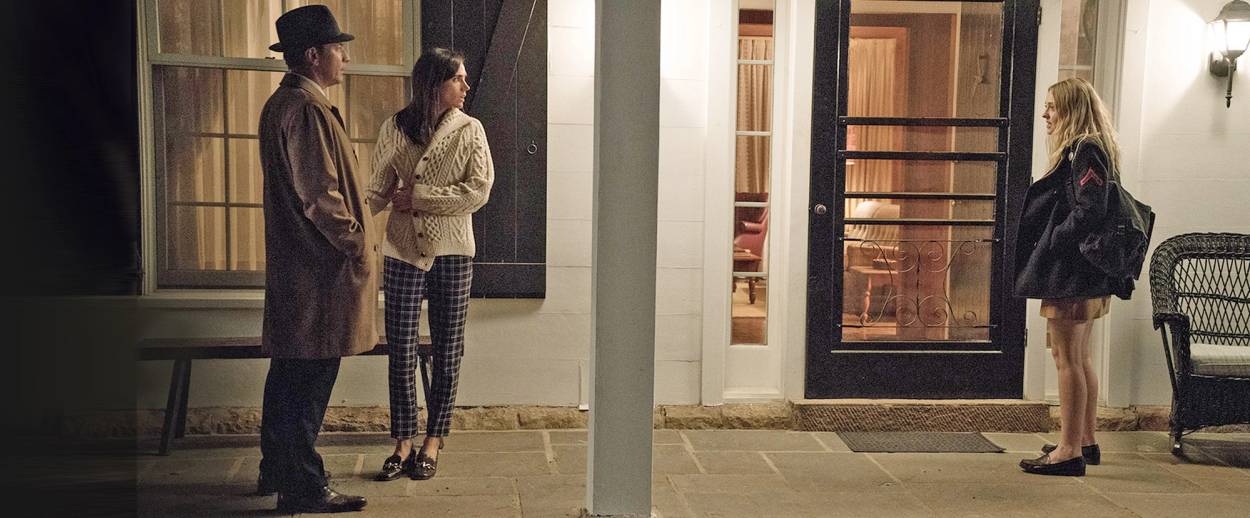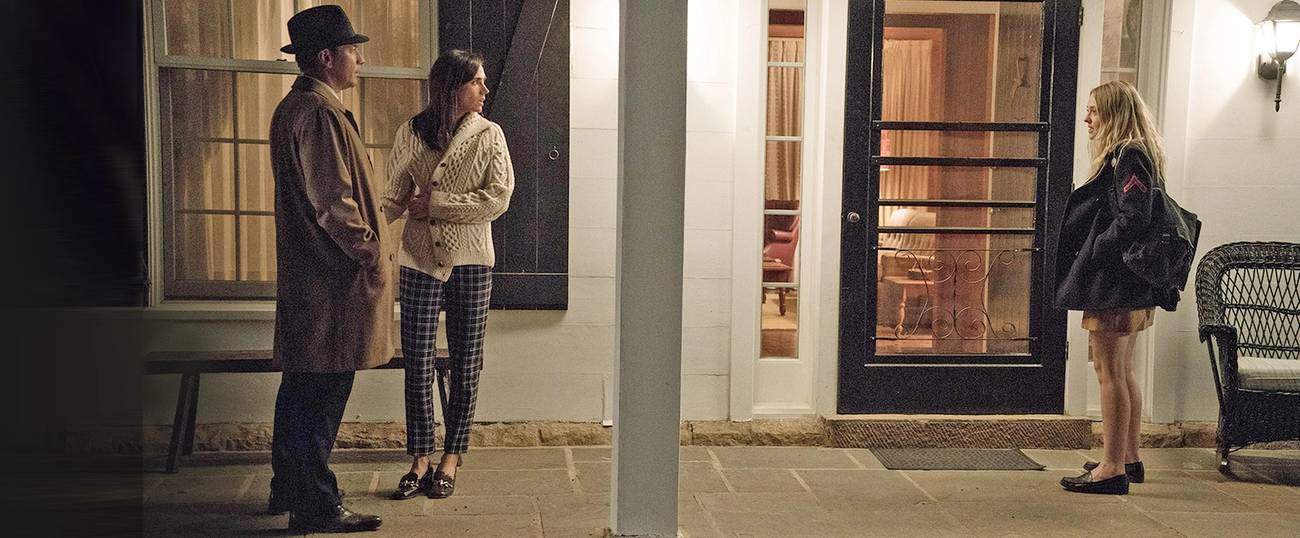Philip Roth Fails Yet Another Screen Test
Not even Ewan McGregor can turn the author’s narcissism into a relatable work of art in his adaptation of ‘American Pastoral’




American Pastoral, Ewan McGregor’s adaptation of Philip Roth’s novel, is easily the most successful attempt at capturing Roth’s work on screen. Which is a bit like saying that the Tenerife airport disaster of 1977 is the most successful attempt at killing 583 people by slamming two Boeings into each other on the tarmac: a distinction, sure, but not one of which anyone ought to be too proud.
This is in no way a reflection on McGregor, whose kindness and decency is doubled in every frame of the movie: It comes off first in McGregor’s portrayal of Seymour “Swede” Levov, the former star athlete turned successful businessman and upstanding citizen, and then again in his choices as the film’s director, giving each of his fellow actors the light and the air they need to let their characters bloom. Which is more than Roth has ever done for any of his creations, save for the ones who were blunt stand-ins for the author himself, and which leaves McGregor facing a chasm he never really manages to bridge.
Call it the Empathy Gap: A movie, unlike a book, isn’t a thesis; it’s a relationship, and if it doesn’t make us feel, we grow cold and resentful and begin to contemplate our escape. A movie, unlike a book, can’t hide behind clever ideas or shield itself with the beauty of its language. A movie shows us people, and we keep watching them because they somehow move us. But Roth’s people don’t, because, in Roth’s world, the only one who matters is Roth.
This profound sense of self-centeredness, ironically, grows clearer with each of the author’s attempts to stride past the preoccupations of his youth and into bigger, bolder books that wrestle with the meaning of America. To his lionizers, the pride of American letters may have started out as an audacious young writer who trained his eye on middle-class Jews and their frustrated desires, but he grew as an artist and so did his appetites, and by the time American Pastoral was published, in 1997, Roth, a man in full, was satisfied with no canvas more modest than American history itself.
It’s a good pitch, but it loses its velocity when met with Roth’s prose. Consider, for example, the following paragraph, American Pastoral’s last: “They’ll never recover. Everything is against them, everyone and everything that does not like their life. All the voices from without, condemning and rejecting their life! And what is wrong with their life? What on earth is less reprehensible than the life of the Levovs?”
Roth never answers the question, mainly because doing so would mean letting life unfurl in all its complication, and that requires letting others flourish, not as thumbnails or caricatures but as real people who contain multitudes. When performed by a master, this thrust of literary empathy is the closest thing on earth to a true communion of souls: Think of Middlemarch’s Rosamond Vincy, permitted by her creator to be vain and fragile, charming and infuriating, beautiful and reprehensible and, to those reading about her, never less than real and whole. But Roth is no Eliot, and his Levovs are drawn in thick, crude lines: Merry, Swede’s daughter, is obese and angry, a difficult child whose frustrations are rooted in banal miseries. She’s just as much of a bore when she bombs a rural gas station to protest the war in Vietnam as she is when she chooses to convert to Jainism and mortify her body and her soul to repent for having taken innocent lives. The country we see through her eyes, and through the eyes of her father, is just as Manichean, a republic that had inexplicably skidded from high school football games and young sweethearts in love and riding horses in the meadow to race riots and home-brewed explosives. These places and people reflect to us anything that feels true or warm or lived-in. Like bad pop music—the artist Roth most closely resembles, arguably, is Billy Joel, another navel-gazer with operatic ambitions—American Pastoral, like Roth’s other work in the past three decades or so, asks you to hum along to an instantly familiar tune without spending too much time contemplating the words or the inch-deep sentiments they express.
This leaves serious and committed artists who have somehow decided to grapple with Roth in a pickle. Doing her best with Merry, Dakota Fanning draws her character’s stutter one note longer than is comfortable to watch and quivers with the inchoate rage of those who have too many emotions and no idea what to do with any of them. McGregor is just as earnest, and when he finally makes his way to the filthy hovel where Merry is hiding from the law and looks into her unlit eyes, his face glows with that wounded kindness that has carried the actor through even the most deadening films of his career (see under: The Phantom Menace). But neither these graceful and well-meaning performances nor McGregor’s calmly confident debut as a director can make up for the fact that Roth had made the Levovs nothing more than emblems of a simplistic idea: America had promise, and that promise somehow soured. It’s rank nostalgia of the cheapest sort, the kind that shares with the most reprehensible political instincts of our contemporary moment the belief that America used to be really great once and that we ought to try and make it great again.
We deserve better. I’ve little sympathy for the violent radicals of the 1960s, but they were capable of speech and thought that went beyond hurling vulgarities at the TV and lobbing bombs at innocents, just as real life’s Swede Levovs have in them more than the single mental note of uncomplicated rectitude. We deserve to see these intricacies; after all, we can hardly be expected to feel anything for our brothers and sisters, flesh and blood or page and ink, if we see them only as clothespins on which the crudely woven quilt of human history heavily hangs.
This basic empathy is lost on Roth. His books are impossible to film not because they are, as my friend Mark Oppenheimer argued in a recent piece, too rich, but because they’re too thin: While Roth’s earlier novels bubbled with the sort of sensual solipsism that may amuse as a book-length rant but grows dull when chopped up into bits of dialogue delivered by actors, his later work explores thorny social and political junctures with all the subtlety and insight of a seventh-grade civics textbook. In such a wilderness, not even McGregor can strike water. He is, like Swede Levov, a good man humbled by circumstances, doing his best but realizing, finally, that everything is against him.
***
Like this article? Sign up for our Daily Digest to get Tablet Magazine’s new content in your inbox each morning.
Liel Leibovitz is editor-at-large for Tablet Magazine and a host of its weekly culture podcast Unorthodox and daily Talmud podcast Take One. He is the editor of Zionism: The Tablet Guide.